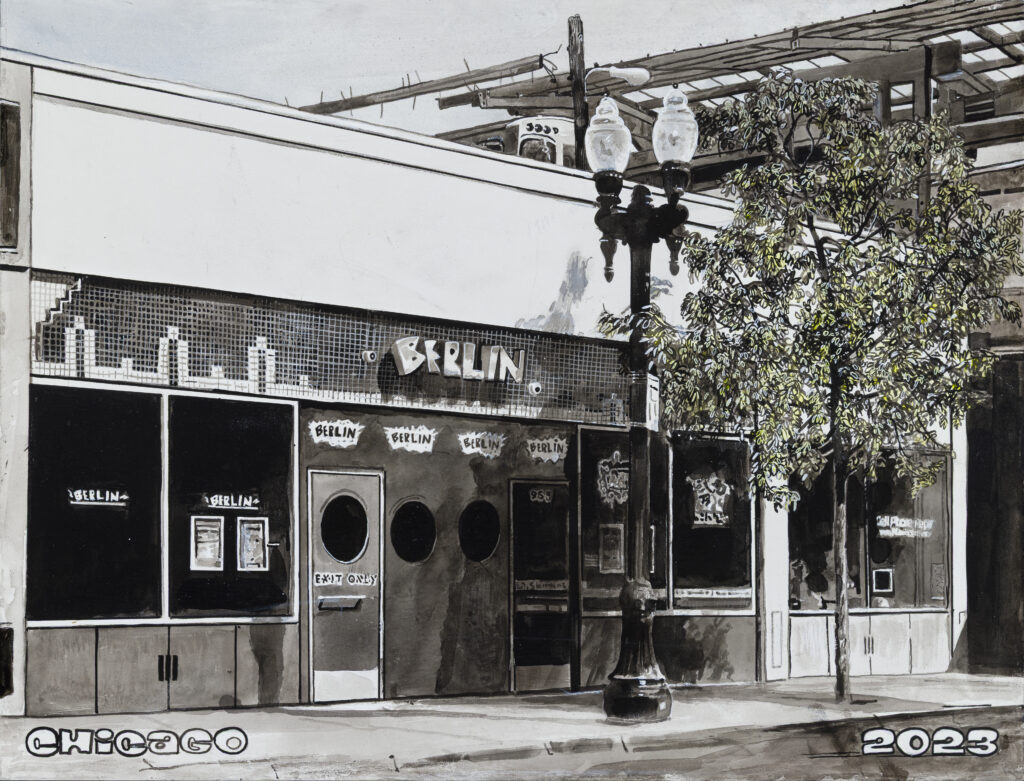Chicago Illinois, USA
Closed 2023

Berlin was an iconic staple in LGBTQ+ nightlife for over 40 years, known as one of the most iconic venues in queer history. So many celebrities and icons would visit this small hole in the wall club, and it was known for literally creating culture. When I first moved to Chicago it was the very first place I visited, knowing I would love it. I ended up working there for a few years and meeting some of my best friends. It was a place for all the freaks and weirdos, known to push the limits of fashion and self-expression. Legendary drag performances, DJs and art installations were a regular occurrence at Berlin. After feuds between the owners and the staff and a loss of revenue post-pandemic, Berlin closed in November of 2023. The people who loved the club are still everywhere but our special spot is gone. Thousands of people have a similar story to their connection to Berlin and that feeling of being able to truly be yourself in a space with no judgement. Anon.
Berlin Night Club may be one of the most important and influential LGBT spaces in Chicago’s history, so much so that it’s even internationally renowned. What I adored about Berlin is that every person I knew had a *story* about Berlin. A first kiss, a first fight, the birth of friendships, romances, rivalries and love in abundance. From 1983-2023 Berlin was *the* spot to find yourself and express in ways that weren’t allowed elsewhere. It wasn’t just for gay men, it was for everyone. I will always dream of the long dazzling nights I spent in that bar with various lovers and friends. Celebrating and dancing through my losses and triumphs. The essence of Berlin was smoke captured in a bottle. An exceedingly rare vibe. A moment. Berlin was life itself for me, and many other folks. Lilith F.
Berlin was a night club that was opened in 1983 by co-owners Shirley Mooney and Tim Sullivan. After Sullivan’s death in 1994, ownership was transferred to Jim Schuman and Jo Webster. Its closure followed a period of staff unionization followed by a boycott; the owners cited rising costs as the primary factor.
The painting is based on an uncredited photograph in an article in ChicagoGoPride.com
No. 304